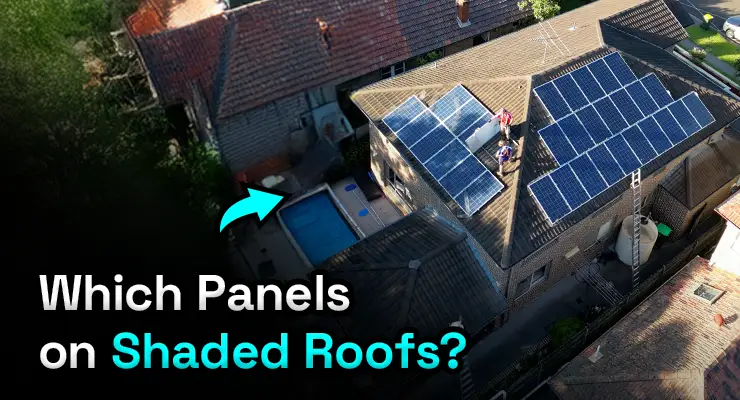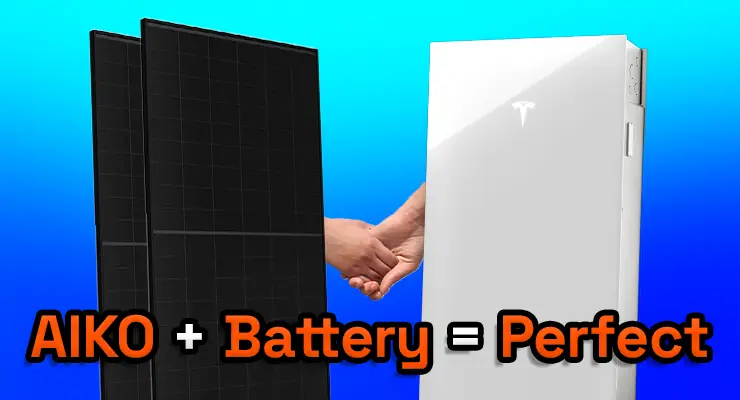
Fast read
Installing solar panels on a rental property can have several benefits for both the landlord and the tenant. One advantage is that the landlord can receive a government rebate of at least $2,000 and depreciate the remaining costs, leading to long-term tax benefits.
Additionally, solar panels can help reduce tenants' electricity bills, leading to happier tenants who may stay in the property for extended periods. This can also result in a financial win-win for both parties, with the landlord potentially increasing rental yields.
Solar panels can also be a selling point for attracting new tenants in a competitive rental market. A solar analytics platform can allow the landlord and tenant to track and optimize energy usage.
Reasons why putting solar panels on a rental property is a good idea
In Australia right now, not enough landlords have decided to put solar panels on a rental property. However, it’s crucial to understand and explore the many advantages it offers. Before implementing any advice on solar panels for a rental property mentioned in this article. Consult with your accountant to customise any solution to your specific circumstances.
The solar rebate, called the STC rebate is assigned to properties with an NMI meter number, not property owners/people. Every grid-connected property has an NMI reference number. So if you already received a solar rebate for your home and are lucky enough to own one or two investment properties. You can also get a solar rebate for these rental premises.
Let me explain the benefits for a landlord and tenants.
The solar benefits for a rental property:
Increased property value:
The first advantage is that the property owner gets a government rebate of at least $2,000 to create a new asset in their home. A quality solar power system on a property will increase the property’s value. A solar PV system addition is a sure-fire, tax-free investment for the long run.
Depreciate the remaining costs:
Naturally, the STC solar rebate will not cover the total cost of the solar energy system. Still, you can depreciate your contribution from your rental income liabilities. By depreciating the cost of the solar system, your tax deductions over time will cover the expense, as it falls under the category of capital expenditure.

A happier tenant means longer rental periods:
You have happier tenants because the reduced electricity bills will put downward pressure on the cost of living for your tenant. Happier tenants stay in a property longer, meaning the need for real estate agents looking for new tenants, a fresh coat of paint, or other minor repairs, to make the property “NEW TENANT READY” will be reduced. You will also have fewer weeks of a vacant property with no rental income while looking for a reliable, stable new tenant.
Create a financial win for all parties:
Let me give you an example of how this could work with real numbers. A $7000, quality 6.6 kW residential solar system in most parts of Australia with the usual electricity usage pattern will save at least $1600 per year for a tenant. This is approx. $1600 savings which represents around $30 average weekly savings on the tenant’s energy bill.
There is no reason one could not add $10 per week to the rent for the solar system benefits. So the property owner enjoys a higher rental yield, and the tenant still saves $20 per week and $1000 per year.
Winning a new tenant:
While we currently experience a tight rental market, this has not always happened. In times of lower rental demand, a 6.6 kW or larger solar system can quickly make the difference in finding a new tenant if the cost of living advantages via lower electricity bills are properly explained to the tenant.
Solar analytics
Another way you and your tenant can also benefit from the solar and create a win/win is by installing some monitoring equipment such as Solar Analytics. The SA app will allow the tenant to see their total consumption, and the Solar Analytics app will let you and the tenant see what your solar system is generating. As well as how much of that is being used by the tenant, and how much is exported.
The app will allow the tenant to maximise solar self-consumption via washing machine, vacuum, and dishwasher. As a result, these appliances can be used more efficiently when plenty of solar electricity is generated. In addition, it gives a clear picture of the solar benefits to the tenant.
Can tenants install a solar panel system on their rental property and claim the rebate?
In such an instance, the landlord’s written permission would be required for such a plan to proceed. Also, the rebate application would need the landlord’s signature, and the rebate would go to the property owner, the landlord. Let’s assume the landlord says yes and passes the rebate on. Unfortunately, in most cases, this idea is still not financially viable for anyone who will not stay in the property for many years.
The reason is that the solar system legally has to stay on the property when you move out. Also, as it is on the house, the system will belong to the home’s owner. The tenant will likely still be out of pocket, as the initial system cost and lower electricity bill will take a few years to create a worthwhile ROI.


